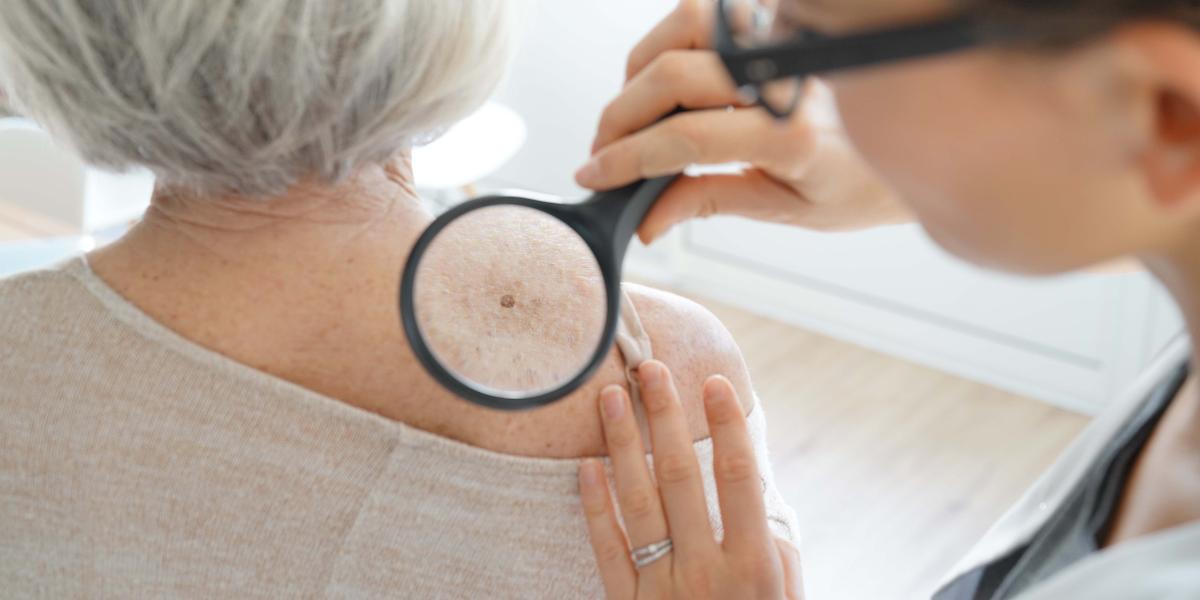Partner Content
“If my patients understand their skin conditions better, they are often better at managing them and feel more empowered in that.”
Dr. Max Weddington is a fellowship-trained dermatologist who specializes in laser treatment of skin conditions. At the University of Maryland Medical Center, he helps his patients truly understand their own bodies and how to best care for them. Here, Dr. Weddington discusses the evolving world of dermatology and how to keep the body’s largest organ (our skin) healthy as we age.
What are the most common skin conditions you see in your clinic?
We often see “the ACERS:” acne, contact dermatitis, eczema, rosacea, and seborrheic dermatitis. Also, skin lesions such as benign growths and cysts, as well as skin cancers like basal cell carcinoma—which is caused by long-term sun damage and is one of the most common human cancers. Cosmetically, I help patients improve the quality of their skin and find ways to age more gracefully and younger adults who want to build healthy skin habits to prevent premature skin aging. Many people, young or old, want to be more proactive now than they used to be.
Which conditions are more prevalent locally?
We have a diverse population in Maryland, with a wide variety of skin types and colors. For patients with more pigmented skin, “dark spots” and scars after acne or other skin inflammations are a common cosmetic concern—called “post-inflammatory hyperpigmentation.”
For people with more fair skin, enjoying the beauty of Maryland’s great outdoors can unfortunately cause a lot of unwanted sun damage, premature skin aging, and contribute to skin cancers.
When should a patient be evaluated for a skin concern?
My general rules are, if something (1) isn’t getting better, (2) is becoming progressively more bothersome, (3) seems to be growing or changing a lot, or (4) acts like a wound that just won’t heal, it’s probably a good idea to have us take a look.
How does our skin change as we age?
With age, we experience a decrease in elements of skin quality like tone, texture, thickness, and hydration. Structural proteins like collagen and elastin break down faster than they renew themselves.
Some things accelerate this aging, like tobacco use and cumulative sun damage. We also experience age-related volume loss in the tissues beneath the skin, like the subcutaneous fat, deep muscles, and bone. Altogether, these can leave us looking hollow with skin that is dry, blotchy, wrinkled, and thin.
What preventative measures can help us age well?
Regular sunscreen use, especially for those with fair skin—mineral-based with zinc oxide and titanium dioxide are my favorite. Also, most people don’t use moisturizer often enough. Keep your skin from getting too dry and it will tend to look younger and be less itchy. Make skincare a healthy habit.
What rejuvenation treatments do you offer for aging skin?
I like injectable poly-L-lactic acid, which stimulates collagen production and helps renew the skin. Hyaluronic acid fillers can be chosen either to restore volume or to soften fine lines. I use neuromodulators, like Botox©, to soften the superficial muscle movements of the face or neck that contribute to the etching of wrinkles. To shrink or remove unwanted brown spots, blood vessels, or scars, I prefer to use special lasers or other energy-based devices.
Tell us about current research underway in the field of dermatology.
There is a new generation of topical and oral anti-inflammatory medications coming that we hope will improve the lives of people affected by eczema, psoriasis, vitiligo, autoimmune hair loss, and other skin conditions. The cosmetic industry is constantly improving neuromodulators, dermal fillers, lasers, and other aesthetic devices.
We’re looking beyond current regenerative treatments—like stem cell or platelet-rich plasma injections—to new potential therapies such as designer peptides, growth factor-packed exosomes, and photobiomodulation to restore skin health. It’s an exciting decade in dermatology.
What do you enjoy most about your work?
Before medical school I worked as a teacher—so the thing I enjoy most about my work is helping my patients know more about their skin and skin conditions. I think if my patients understand their skin conditions better, they are often better at managing them and feel more empowered in that.

MEET THE EXPERT:
Max Weddington, MD
Assistant Professor of Dermatology
University of Maryland School of Medicine
Locations: Columbia & Downtown Baltimore
Appointments: 667-214-1171
umfpi.org/dermatology
